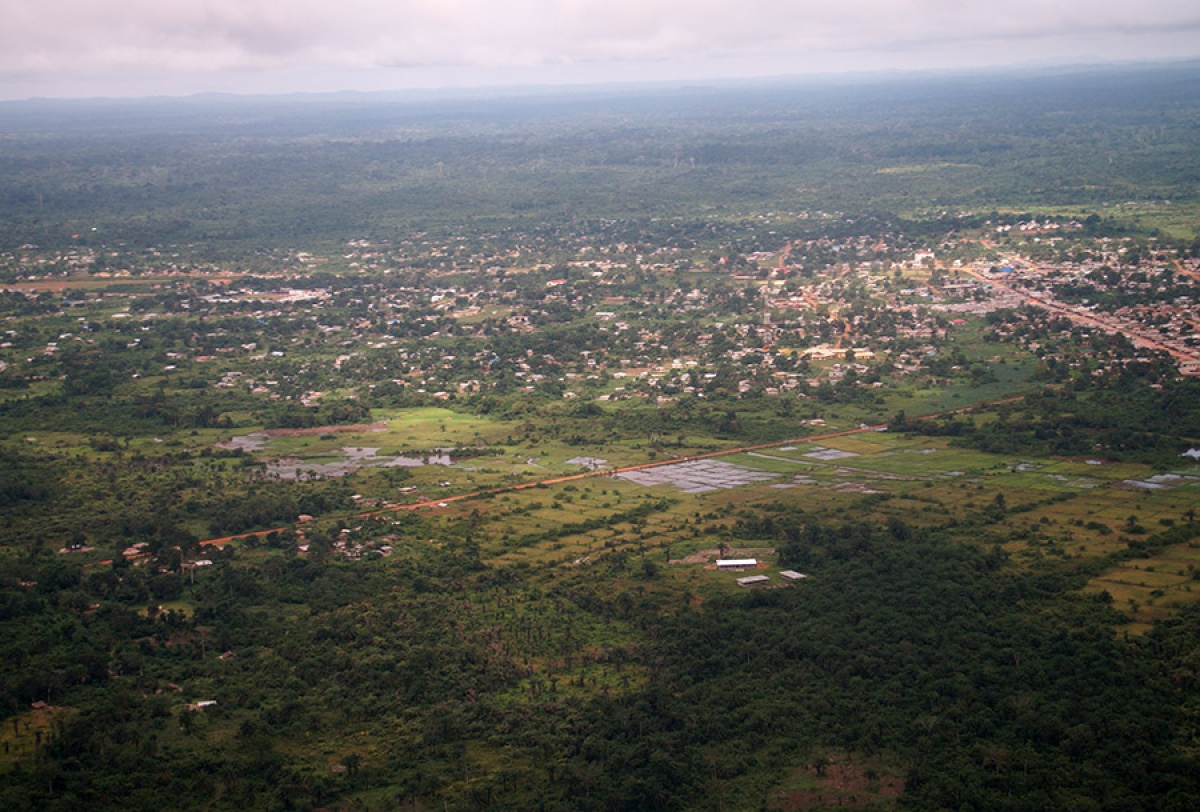In Liberia, Rapid Response Teams Look to Get Ahead of Ebola
Posted on Nov 21, 2014

On Wednesday, five Partners In Health nurses, a doctor, and a logistician arrived in Rivercess, Liberia, a predominantly rural county located in the southern portion of the country. These five frontline health workers are part of a multiorganization “rapid response” team. The team will assess epidemiological reports suggesting there is a cluster of Ebola cases in this remote county. They will meet with county health officials and community leaders to understand the immediate needs, and they will begin training local staff in infection control and prevention.
Many of Liberia’s Ebola cases have been confined to three counties—Monteserrado, Margibi, and Bong. However, the epidemic seems to have now turned away from Monrovia. “Even though the overall daily case number now appears to be falling in Liberia, we don’t have the luxury of having nearly all those cases confined to three counties,” said John Welch, chief clinical officer for PIH’s Ebola response. “There are now confirmed Ebola cases in every county of the country. We are at a very dangerous stage epidemiologically.”
Rapid response teams will play a vital role in evaluating reports of Ebola clusters in remote areas, and when needed, deliver timely care to patients in need.
When PIH first committed to fighting the Ebola outbreak in Liberia and Sierra Leone, one of our main objectives was to decentralize care away from capital cities and overwhelmed Ebola Treatment Units and expand services in rural areas. The rapid response teams are a major step toward achieving this, and they should improve contact tracing—a critically important step in containing the outbreak—in hard-to-reach areas.
The rapid response teams work in two phases. The first phase is a thorough and swift assessment. The team will meet with county and community leaders, seek to better understand the epidemiology and determine how severe the outbreak is, and evaluate what type of existing infrastructure can be leveraged in mounting an immediate response. One of the most important considerations is nearby access to a clean water source that can support UNICEF’s WASH (water, sanitation, and hygiene) efforts.
“The second phase depends on the community’s needs. Every mobile response will be different and we will adapt to the specific needs,” Welch explains. “They will all, however, have the same foundation—isolation, triage, and compassionate, dignified care.”
The nearest Ebola Treatment Unit is an eight-hour drive from the part of Rivercess that the team is working in, potentially longer depending on weather and road conditions. Welch says that one option may be to establish small treatment units within the county by either repurposing existing facilities or setting up a small treatment unit.
We are all doing our part to provide as much dignity for what is really an undignified disease.
PIH has extensive experience dispatching small teams to provide high-quality care and support to hard-to-reach patients. In Malawi and Haiti, our mobile clinics regularly travel to remote regions where the need is substantial and resources are severely limited. In Russia, our Sputnik team makes daily home visits to deliver medicine and food to marginalized drug-resistant tuberculosis patients.
While the highly infectious nature of Ebola presents unique challenges, we are drawing on our past experiences to ensure that rapid response teams address the acute need of patients while contributing to long-term efforts that strengthen Liberia’s health system.
In addition to the rapid response team in Rivercess, a PIH nurse recently traveled with two Ministry of Health doctors and a hygienist to Grande Cape Mount, Liberia, where at least 30 deaths have been reported since September. Welch says while the challenges remain immense, it is uplifting to see nongovernmental organizations, the Ministry of Health, and communities work in concert to get ahead of the outbreak. One organization has committed itself to facilitating the safe burials of Ebola victims. UNICEF has consistently delivered WASH support.
“This is a true coalition, and we are all doing our part to provide as much dignity for what is really an undignified disease,” Welch says.

